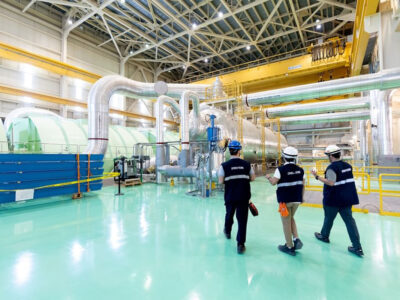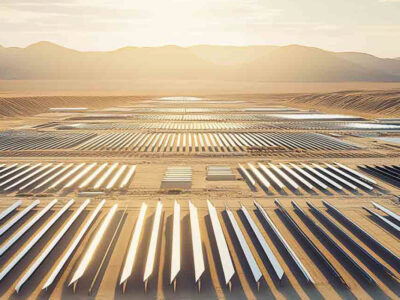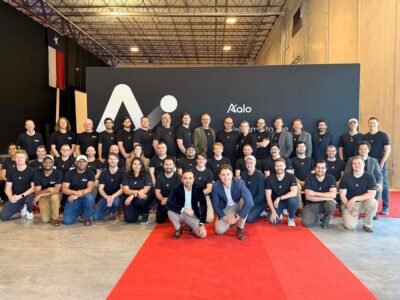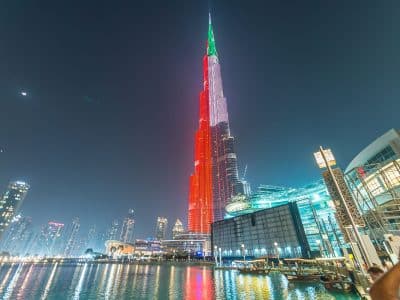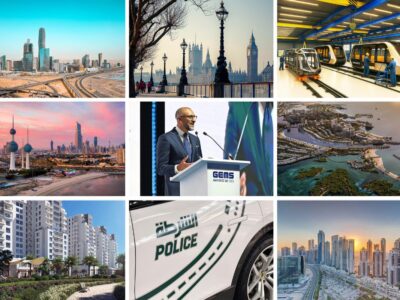The third unit of the Barakah Nuclear Energy Plant in the UAE has been connected to the national grid.
As reported by Arabian Business, the reactor was switched on just weeks ago and it is already supplying carbon-free nuclear energy in the UAE.
Unit 3 will add another 1,400 megawatts of zero-carbon emission electricity capacity to the national grid, a major step forward in guaranteeing UAE energy security and energy sustainability to tackle climate change – two of the biggest challenges facing the world today.
Nuclear energy in the UAE
With both Units 1 and 2 already in commercial operation, generating clean electricity every minute of the day and with Unit 3 close to commercial operations in the coming months – Barakah is accelerating the decarbonisation of the power sector and forms an essential component of the UAE’s Net Zero 2050 Strategy.
Nuclear energy in the UAE is a key component of the country’s clean energy system of multiple low-carbon technologies, ensuring the reliability, efficiency and resilience of the UAE grid for at least the next 60 years.
Mohamed Ibrahim Al Hammadi, Managing Director and Chief Executive Officer of ENEC, said, “Our leadership’s long-term vision and decisions more than 13 years ago are paying dividends today as we celebrate another proud moment for the UAE Peaceful Nuclear Energy Program.”
Through clean electricity generated at Barakah, nuclear is helping to decarbonise some of the most energy intense sectors. Nuclear power in the UAE enables the country to divert high-value LNG fuels for export, increasing national funds availability for international investment to drive economic diversification.
“Connecting Unit 3 to the UAE transmission grid adds thousands more megawatts of clean electricity to power all aspects of society, replaces the need to burn US$4bn worth of gas which can be diverted for export, and through Clean Energy Certification, gives many companies in the UAE a unique competitive advantage,” said Al Hammadi.

“I am proud of our Emirati-led teams who continue to showcase world-class levels of capability, knowledge and expertise – powering a Net Zero economy through their work. Congratulations to everyone who has helped make these achievements a reality.”
Following grid connection, Unit 3 will undergo the process of gradually raising power levels, known as Power Ascension Testing (PAT). The process will be continuously monitored and tested until maximum electricity production is reached, while adhering to all local regulatory requirements and the highest international standards of safety, quality and security.
The four units at Barakah alone is contributing 25 percent of the UAE’s National Determined Contributions to Net Zero and is the largest source of dispatchable clean electricity.
The Plant demonstrates how nuclear energy projects can be delivered safely, successfully and competitively to tackle growing carbon emissions.
Bill Gates praised nuclear energy in the UAE
Earlier this week Microsoft co-founder and Billionaire philanthropist Bill Gates praised the UAE’s efforts to achieve net zero carbon emissions.
“The nuclear reactors at the Barakah power plant that are operational and pumping electricity into the grid are examples of how the country is managing the transition thoughtfully,” he said.
Prior to the switch on the Barakah Nuclear Energy Plant went through a rigorous testing phase before it began to supply nuclear energy in the UAE.
Nawah, the Joint Venture subsidiary of ENEC and the Korea Electric Power Corporation (KEPCO), has been safely progressing through a comprehensive testing program prior to successfully completing the startup of the third nuclear energy reactor.
The Federal Authority for Nuclear Regulation (FANR), UAE’s independent nuclear regulator, has closely monitored the whole testing process. It followed the World Association of Nuclear Operators’ (WANO) completion of a Pre-Start-Up Review (PSUR), prior to receipt of the Operating License.
